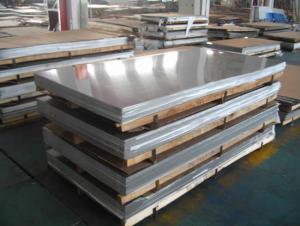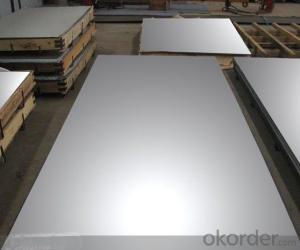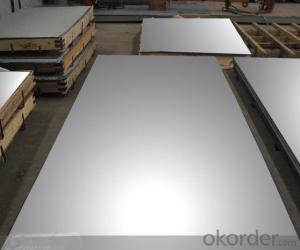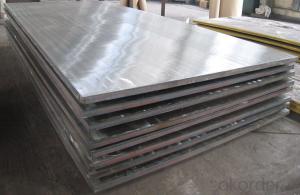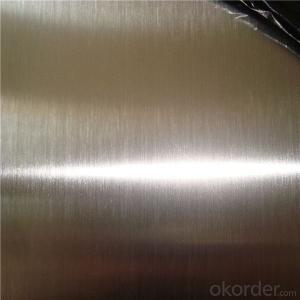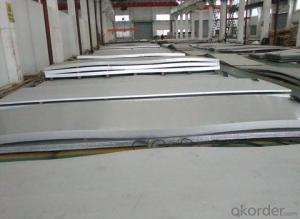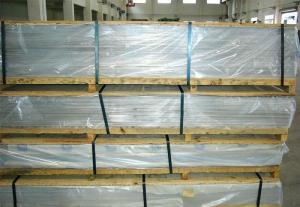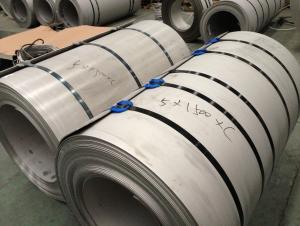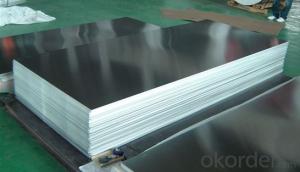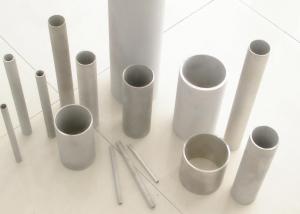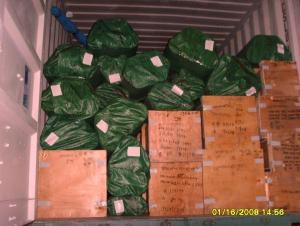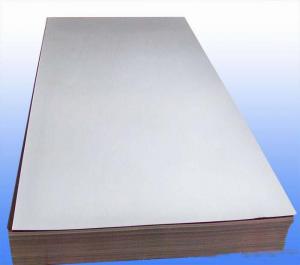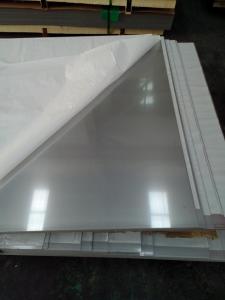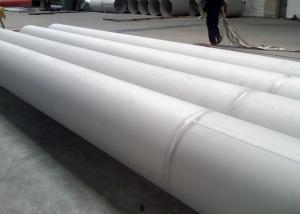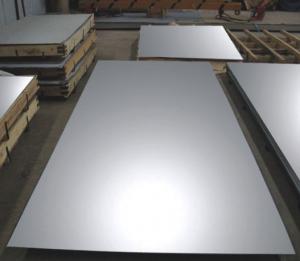Stainless Steel Plate With Best Price In Our Warehouse
- Loading Port:
- Shanghai
- Payment Terms:
- TT or LC
- Min Order Qty:
- 5 m.t.
- Supply Capability:
- 4000 m.t./month
OKorder Service Pledge
OKorder Financial Service
You Might Also Like
1.Structure of Product Description
there are many different grades, such as: 200 series, 300 series, 400 series, 900series, etc. The detailed grade are as follows: 201, 202, 301, 304, 316, 410, 420, 430, etc.ok, we are one of biggest group enterprise with best-selling price and best quality for stainless steel slab, please contact me if you are interested in any of items towards stainless steel sheet.
The surface is including 2B, BA, Mirror Finish, Checkered, etc.
2. Main features of the product
a. Competitive price
b. Frist-Class Service.
3. Image.
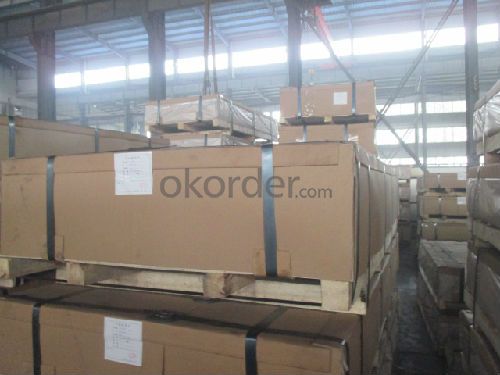
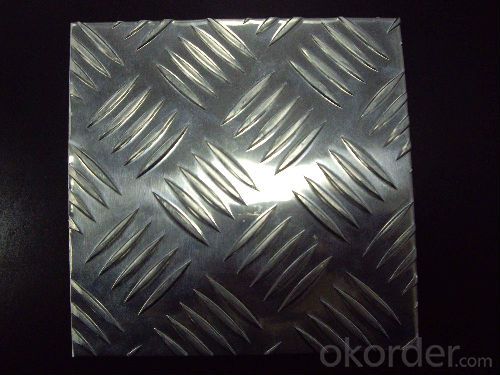
4. Product detailed sizes:
1000mm*2000mm, 1219mm*2438mm,1220mm*2440mm, 1250mm*2500mm,1500mm*3000mm, etc.
5. FAQ:
What is the quality standard?
---Usually our standard is GB3880-2006 or else.
What is the width range?
---It is from 1000mm to 2500mm, etc.
What is the length range?
---It is from 2000mm to 6000mm, etc.
What is the MOQ for your products yet?
---Normally it is around 3 tons/each size.
How many tons did you export in one year?
---Normally it is around 9000 tons totally.
Where is your client from?
---Normally it is from Japan, USA, ENGLISH, SINGAPORE, ETC.
What is your mainly products?
---Normally they are stainless steel sheet, stainless steel coil, stainless steel checkered sheet, stainless steel mirror finished sheet, color coated stainless steel sheet, etc.
- Q: Can stainless steel sheets be used for kitchen utensils?
- Yes, stainless steel sheets can be used for kitchen utensils. Stainless steel is a popular choice for kitchen utensils because it is durable, easy to clean, and resistant to rust and corrosion. Stainless steel sheets can be shaped and formed into various utensils such as spoons, forks, knives, spatulas, and more. Additionally, stainless steel is non-reactive, meaning it does not leach any harmful chemicals into food, making it a safe option for cooking and eating utensils. Overall, stainless steel sheets are a great material choice for kitchen utensils due to their strength, hygiene, and longevity.
- Q: Can stainless steel sheets be used for mezzanine flooring?
- Indeed, mezzanine flooring can be constructed using stainless steel sheets. Being a robust and corrosion-resistant substance, stainless steel proves itself appropriate for diverse purposes, such as flooring. With its exceptional durability and ability to endure substantial weights, stainless steel emerges as an optimal choice for mezzanine structures. Moreover, the advantage of hassle-free cleaning and maintenance guarantees a sanitary and visually appealing flooring alternative.
- Q: What are the benefits of using etched stainless steel sheets in signage?
- There are several benefits of using etched stainless steel sheets in signage. Firstly, etched stainless steel sheets are extremely durable and long-lasting. Stainless steel is known for its resistance to corrosion, rust, and fading, making it ideal for outdoor signage that is exposed to harsh weather conditions. Secondly, etched stainless steel sheets offer a sleek and professional appearance. The process of etching allows for intricate designs, logos, and text to be permanently engraved onto the surface of the stainless steel. This creates a high-end and visually appealing finish that adds a touch of sophistication to any signage. Furthermore, etched stainless steel sheets are highly customizable. They can be tailored to meet specific design requirements, making them suitable for a wide range of signage applications. Whether it is for architectural signage, company logos, directional signs, or wayfinding systems, etched stainless steel sheets can be designed to suit any style or branding. Moreover, stainless steel is easy to clean and maintain. It can be wiped down with a cloth or cleaned with mild soap and water, ensuring that the signage remains in pristine condition for an extended period. This low maintenance requirement is particularly advantageous for outdoor signage, where regular cleaning may be necessary. Lastly, etched stainless steel sheets offer excellent visibility. The engraved designs on the stainless steel surface can be filled with paint or other materials to create contrast, making the signage highly visible even from a distance or in low light conditions. This enhanced visibility is crucial for effective signage, as it ensures that the intended message or information is easily communicated to the target audience. In conclusion, the benefits of using etched stainless steel sheets in signage include durability, a professional appearance, customization options, easy maintenance, and excellent visibility. These advantages make etched stainless steel sheets a popular choice for signage applications in various industries.
- Q: Can stainless steel sheets be used for architectural railings?
- Yes, stainless steel sheets can be used for architectural railings. Stainless steel is known for its durability, corrosion resistance, and aesthetic appeal, making it a popular choice for architectural applications such as railings. It offers strength and stability while also adding a sleek and modern look to any structure.
- Q: Can stainless steel sheets be used for outdoor furniture?
- Yes, stainless steel sheets can be used for outdoor furniture. Stainless steel is a highly durable material that is resistant to rust, corrosion, and weathering. This makes it an ideal choice for outdoor furniture as it can withstand the elements and retain its appearance and structural integrity over time. Additionally, stainless steel has a sleek and modern look that can complement various outdoor design styles. Whether it's for tables, chairs, or other outdoor furniture pieces, stainless steel sheets can provide a long-lasting and visually appealing option for outdoor use.
- Q: Can stainless steel sheets be used for elevator ceilings?
- Elevator ceilings can indeed utilize stainless steel sheets. The durability, sleek look, and corrosion resistance of stainless steel make it a favored option for this purpose. Its adaptability allows it to be shaped and sized to fit diverse elevator designs. Moreover, stainless steel sheets possess outstanding fire resistance and can endure high temperatures, ensuring safety when used for elevator ceilings. Furthermore, stainless steel is effortlessly cleaned and maintained, guaranteeing the long-term preservation of their appealing appearance.
- Q: Can stainless steel sheets be used for conveyor systems?
- Certainly! Conveyor systems can indeed utilize stainless steel sheets. Stainless steel is a highly durable and sturdy substance that possesses excellent resistance against corrosion. This exceptional quality makes it the perfect choice for conveyor systems that may come into contact with moisture or harsh chemicals. Moreover, stainless steel is effortless to clean and maintain, which is crucial for ensuring the hygiene and longevity of conveyor systems in industries such as food processing or pharmaceuticals. The sleek surface of stainless steel sheets also aids in the smooth movement of materials along the conveyor, minimizing friction and enhancing efficiency. As a result of their strength, resistance to corrosion, and ease of maintenance, stainless steel sheets are widely favored for use in conveyor systems.
- Q: Are stainless steel sheets suitable for elevator flooring?
- Yes, stainless steel sheets are suitable for elevator flooring. Stainless steel is a durable and corrosion-resistant material, making it an excellent choice for high-traffic areas like elevator floors. It can withstand heavy loads and is resistant to scratches, stains, and dents, ensuring a long-lasting and aesthetically pleasing flooring option. Additionally, stainless steel is easy to clean and maintain, making it a hygienic choice for elevator flooring.
- Q: What are the different grades of stainless steel sheets?
- There are several different grades of stainless steel sheets, including 304, 316, 430, and 201.
- Q: Are stainless steel sheets suitable for food display cases?
- Indeed, stainless steel sheets are well-suited for food display cases. The food industry extensively employs stainless steel because of its hygienic qualities and lastingness. Its resistance against corrosion, staining, and bacterial proliferation renders it a material of choice for food display cases. Moreover, stainless steel's simplicity in cleaning and upkeep enables a secure and sanitary food display environment. Furthermore, stainless steel's smooth and contemporary aesthetic elevates the presentation of food items, rendering it a favored option for food display cases in establishments like bakeries, delis, and supermarkets.
Send your message to us
Stainless Steel Plate With Best Price In Our Warehouse
- Loading Port:
- Shanghai
- Payment Terms:
- TT or LC
- Min Order Qty:
- 5 m.t.
- Supply Capability:
- 4000 m.t./month
OKorder Service Pledge
OKorder Financial Service
Similar products
Hot products
Hot Searches
Related keywords
